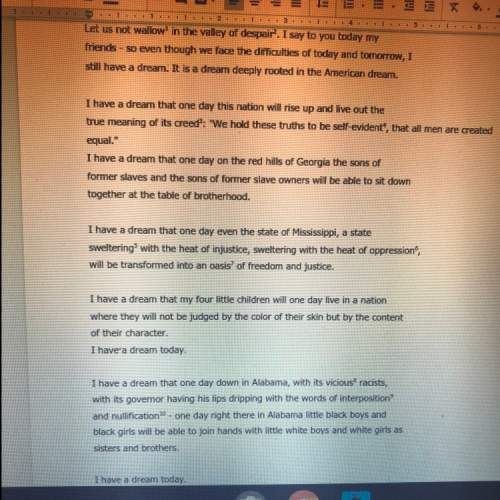
(LC)Letter to a Citizen of Kentucky, an excerpt Executive Mansion, Washington, April 4, 1864. A. G. Hodges, Esq., Frankfort, Ky. My Dear Sir: You ask me to put in writing the substance of what I verbally stated the other day, in your presence, to Governor Bramlette and Senator Dixon. It was about as follows: I am naturally anti-slavery. If slavery is not wrong nothing is wrong. I cannot remember when I did not so think and feel; and yet I have never understood that the Presidency conferred upon me an unrestricted right to act officially in this judgment and feeling. It was in the oath I took that I would to the best of my ability preserve, protect and defend the Constitution of the United States. I could not take the office without taking the oath. Nor was it in my view that I might take the oath to get power, and break the oath in using the power. I understood, too, that in ordinary civil administration this oath even forbade me to practically indulge my primary abstract judgment on the moral question of slavery. I had publicly declared this many times and in many ways; and I aver that, to this day I have done no official act in mere deference to my abstract judgment and feeling on slavery. I did understand, however, that my oath to preserve the Constitution to the best of my ability imposed upon me the duty of preserving, by every indispensable means, that government, that nation, of which that Constitution was the organic law. Was it possible to lose the nation, and yet preserve the Constitution? By general law, life and limb must be protected; yet often a limb must be amputated to save a life, but a life is never wisely given to save a limb. I felt that measures, otherwise unconstitutional, might become lawful by becoming indispensable to the preservation of the Constitution through the preservation of the nation. Right or wrong, I assumed this ground, and now avow it. I could not feel that to the best of my ability I had even tried to preserve the Constitution, if, to save slavery, or any minor matter, I should permit the wreck of government, country, and Constitution altogether. When, early in the war, General Fremont attempted military emancipation, I forbade it, because I did not then think it an indispensable necessity. When, a little later, General Cameron, then Secretary of War, suggested the arming of the blacks, I objected, because I did not yet think it an indispensable necessity. When, still later, General Hunter attempted military emancipation, I forbade it, because I did not yet think the indispensable necessity had come. When, in March and May and July, 1862, I made earnest and successive appeals to the Border States to favor compensated emancipation, I believed the indispensable necessity for military emancipation and arming the blacks would come, unless averted by that measure. They declined the proposition; and I was, in my best judgment, driven to the alternative of either surrendering the Union, and with it the Constitution, or of laying strong hand upon the colored element. I chose the latter. In choosing it, I hoped for greater gain than loss; but of this I was not entirely confident... Yours truly, A. Lincoln Use context to determine the meaning of the words in bold. Crucial requirement Mutual agreement Significant other Worthwhile pastime

Answers: 3
Another question on English

English, 21.06.2019 15:00
1)what was the first thing that cast doubt on the authenticity of the king being peter wilks's english brother? a)his refusal to answer questionsb)his arrival in town in a canoec)his illiteracy and inability to writed)his lack of knowledge about the wilks family 2)how did huck escape the clutches of the angry townspeople? a)he told them where the gold was.b)he ran off while digging up the body.c)his captor released him while running to see the gold.d)his captor sent him away because he did not want to share the gold.
Answers: 3

English, 21.06.2019 16:30
Consider tim o’brien’s story "ambush." what differences do you see between how o’brien dealt with killing an enemy soldier in the moment of battle compared to looking back on the moment later in life? what might this contrast reveal about the effects of war?
Answers: 2


English, 22.06.2019 09:30
If their eyes were watching god were told from the first person point of view how might the the story be different would it be a more captivating or interesting story why or why not
Answers: 1
You know the right answer?
(LC)Letter to a Citizen of Kentucky, an excerpt Executive Mansion, Washington, April 4, 1864. A. G....
Questions


Mathematics, 30.10.2020 22:10


Mathematics, 30.10.2020 22:10

Mathematics, 30.10.2020 22:10



Mathematics, 30.10.2020 22:10


History, 30.10.2020 22:10

Mathematics, 30.10.2020 22:10

Mathematics, 30.10.2020 22:10


Mathematics, 30.10.2020 22:10





Biology, 30.10.2020 22:10

Arts, 30.10.2020 22:10




